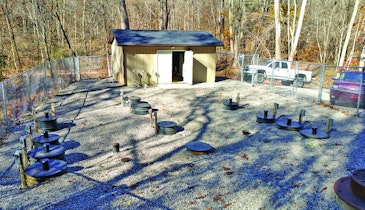Interested in Education/Training?
Get Education/Training articles, news and videos right in your inbox! Sign up now.
Education/Training + Get AlertsMore than 30 communities and organizations on Long Island are launching a public campaign to encourage homeowners to properly maintain and have their septic tanks and cesspools pumped on a regular basis. They are all partners in the CESSPOOL Project (Coordinated Environmental Solutions for Septic Problems Occurring On Long Island). The Long Island Liquid Waste Association (LILWA) is one of the groups conducting the campaign supported by grant money from the Long Island Sound Futures Fund of the U.S. Fish and Wildlife Foundation, and the Local Waterfront Revitalization Program through the New York Department of State. The multimedia campaign includes a brochure, fact sheets, a file for homeowner recordkeeping, and a website www.getpumpedli.org. Coupons offering a $50 savings are being accepted by 10 companies.
Alaska
Septic waste was the topic when the Alaska Supreme Court held one of its LIVE outreach programs at Colony High School in Palmer. The court’s five justices heard oral arguments in the school’s gymnasium in front of a crowd of students. The case involved a farmer who uses septage as fertilizer on some of his acreage and a developer who is building a subdivision nearby. Alaska’s Superior Court had found in favor of the homebuilder, ordering the farmer to stop or minimize odor coming from the site and pay the homebuilder $90,000 in damages. The farmer appealed based on the state’s Right To Farm Act. After oral arguments, 300 students were allowed to ask questions of the justices and attorneys involved in the case.
Iowa
After years of discussion, the city of Rodman has entered into a consent agreement with the Iowa Department of Natural Resources to develop a plan to reduce unlawful sewage discharges from septic systems in the community. The city has agreed to submit a report to the DNR by July 2017 and a final plan by January 2020. The issue dates back to 1980 when the Department of Environmental Quality first sent a letter to the city. A 2008 complaint led to a notice of violation in 2010 and the city began studying alternatives, only to find it could not afford to do further studies. The city was designated as a Disadvantaged Unsewered Community in 2015. As such, and since it has been cooperating with the DNR, the city will not face daily civil penalties of up to $5,000 for violations.
Close to 40 homes near Chatfield Lake in Lee County, Iowa, were notified in October that they had 30 days to install approved onsite sewage treatment systems. This came after county government decided against installing a community sewer system for the unincorporated area of Mooar and Powdertown following four years of study. A sewer system would cost the county about $1.2 million and monthly bills for users would be about $75. Local officials say low-income residents could not afford the bills, which could leave the county responsible for costs under the regional sewer agreement.
Minnesota
After five years, an Amish family has been told to stop work on a home under construction and has been banned from living in the structure. Fillmore County adopted its septic regulations in 2013, allowing graywater systems that fit within Amish beliefs. A District Court judge in early October ruled against the family that cited religious reasons for not installing a septic system or getting a building permit. The house does not have to be torn down, but nobody can live there and no further construction work can be done until a permit is received. It could be converted to a barn or other use, but all drains would have to be sealed and the building inspected. Meanwhile, the family is living in a smaller home nearby without a permitted graywater system, but uses a straight pipe running directly into the ground. That may be the next issue pursued by the county.





